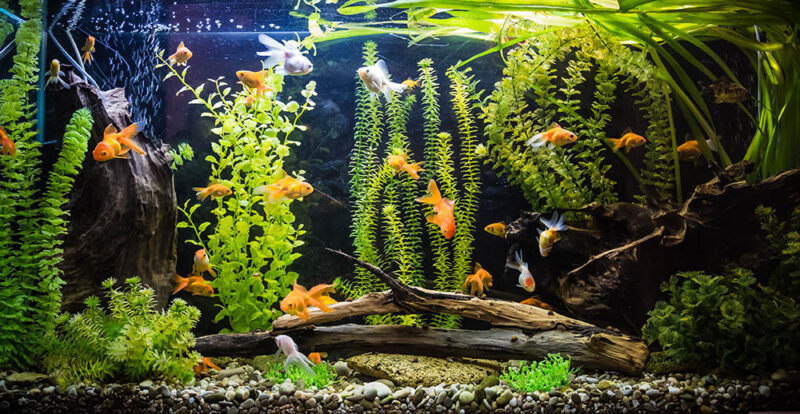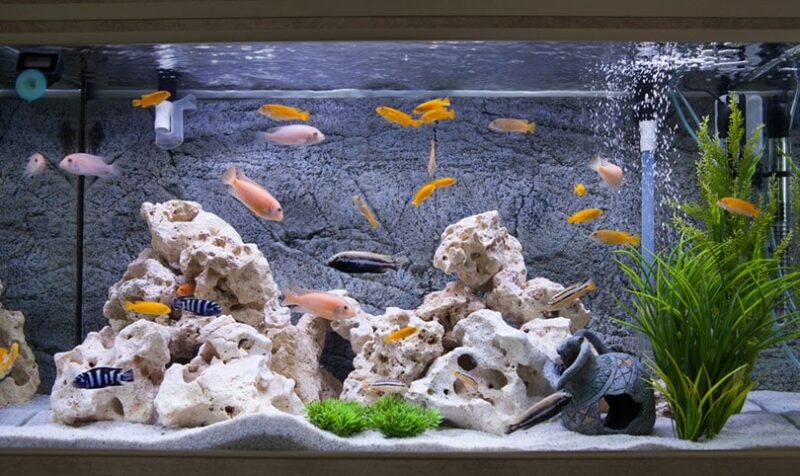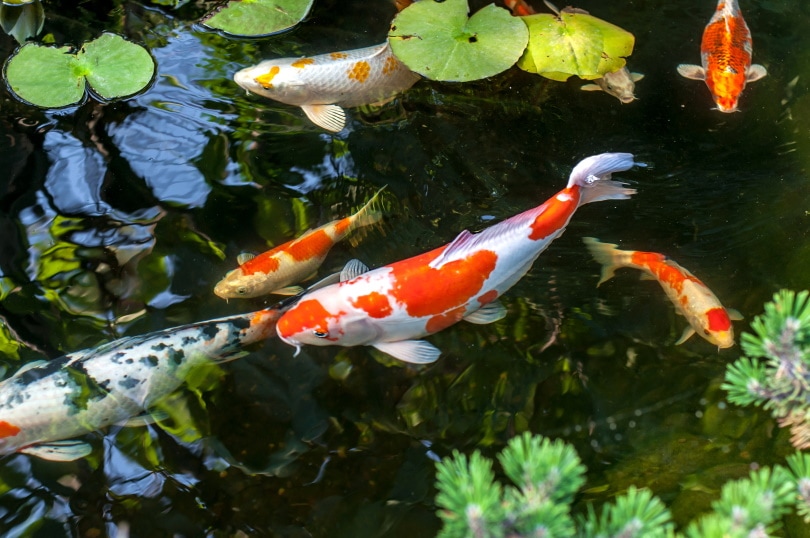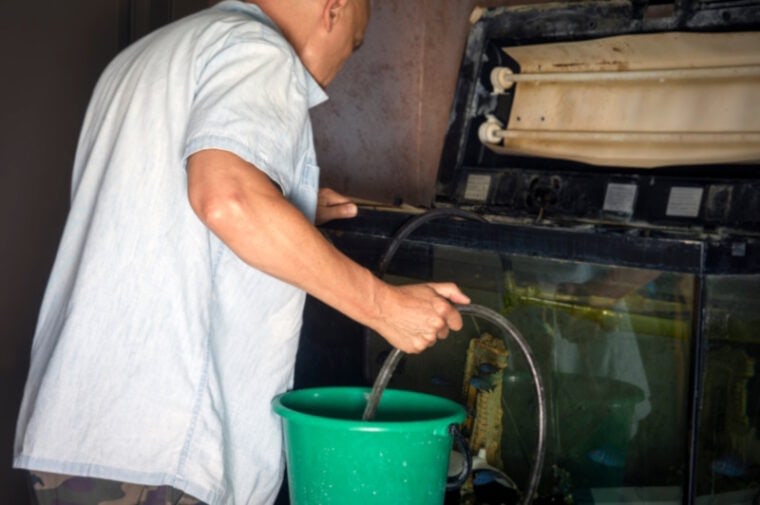
Maintaining a fish tank is both rewarding and entertaining, but sometimes a smelly tank can ruin the experience. Although a fish tank usually has a mild smell, it shouldn’t be overpowering or particularly unpleasant. Certain smells are simply normal for fish tanks, while others can be an indication that something is wrong. Furthermore, the smell of an aquarium can also give you insight into how healthy or unhealthy the aquarium’s environment is.
Let’s take a look below at the various reasons your fish tank might be smelling unpleasant.
The 9 Reasons Your Fish Tank Might Smell
1. The Smell Is Natural
All fish tanks will have some sort of smell that is considered natural and normal. A healthy fish tank doesn’t just smell like nothing, nor should it be overpowering or foul-smelling. If your fish tank has recently been set up and is undergoing the nitrogen cycle, you may notice the water has a slight earthy smell to it. This is because the tank will experience a bacteria bloom during the cycle which can cause a distinctive earthy smell.
This earthy and almost soil-like smell from fish tanks is also common in well-established tanks. This is a sign that your fish tank is healthy, and the smell is a combination of the tank’s natural bacteria, fish waste, and nutrients in the water column. There is not much you can do to get rid of this smell, nor do you want to if your tank is healthy.
Please note that at times, a similar smell can be found in your water source. This is especially true if the plumbing in your home is new, was left unused for prolonged periods, or if you source your water from a particularly warm area (such as near a water heater). This smell is also harmless but can be removed by installing an appropriate filter on the main plumbing entry line to your house.

2. A Fish Has Died
A fish tank that has a potent fishy odor is usually caused by a decomposing fish. Even small dead fish can cause your fish tank to smell bad. The odor is generally unpleasant and doesn’t smell as inviting as a natural earthy fish tank smell. If you have multiple fish in the tank, you will need to check which one could have died.
It is usually easier to determine which fish died if you keep larger fish, but small fish like Tetras and Guppies can be harder to spot. It is important to remove the dead fish from the tank right away since the smell will be the least of your worries. A decomposing fish can cause a spike in your aquarium’s ammonia levels, which is detrimental to your fish tank’s inhabitants. This is typically why one dead fish can cause a chain reaction of multiple fish deaths.
Alternatively, other fish tank inhabitants like a snails could have died as well. Dead aquarium snails give off a strong odor that can cause the tank’s water to smell foul.
At times, you might gain clues about a tank inhabitant’s untimely demise if you notice an oily biofilm on your water surface alongside a weird odor coming from the water surface.
3. The Filter Has Stopped Working
The filtration system plays a vital role in the health and function of the fish tank. When it stops working or becomes clogged, your tank’s water quality can quickly deteriorate. The water will become stagnant and poorly oxygenated, and the fish’s waste won’t be able to be processed. This can cause a bad smell as the fish poop and leftover food start to build up. If the broken or clogged filter goes unnoticed for a few days, it may cause some of your fish to perish. The combination of stagnant fouling water and dead fish can smell incredibly bad.
Since most filters nowadays are silent, it is important to check them daily to see if they are functioning properly. You won’t always be able to determine if your filter isn’t working just by the sound it produces. The filter media should also be cleaned and replaced when necessary to keep the filter working effectively.
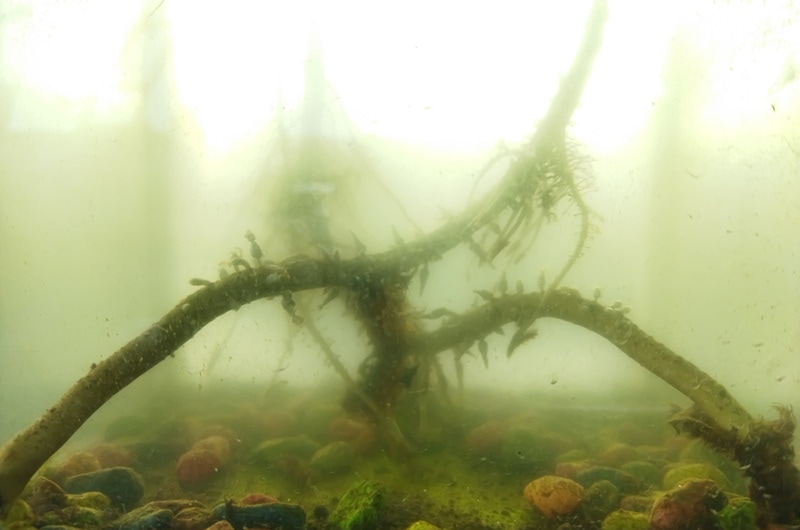
4. The Tank Needs Maintenance
Fish tanks shouldn’t just be set up and left to establish themselves on their own—you will need to regularly maintain the tank. This includes doing water changes and gravel vacuums and maintaining the tanks plants and equipment (filters, heaters, skimmers). Not all of the fish’s waste and leftover food is processed by the filter and if it is left to build up in the tank, it can cause the water to foul. This ultimately causes your fish tank to smell bad and it is a sign that the tank needs a thorough cleaning. Regular water changes and gravel vacuums can help prevent the tank from smelling due to poor water quality.
5. Certain Medications or Water Treatments
There are certain medications and water treatments that can cause your fish tank to smell when they are added. This is because the medication or water treatments themselves have a foul smell, or they cause a reaction in the water that contributes to a smell.
Water treatments such as Seachem Prime, which is a popular water conditioner, can cause your tank to smell like rotten eggs. This smell is caused by the sulfate ingredients which give off an unpleasant rotten egg odor. If you happen to add too much at a time, the fish tank water may smell like rotten eggs for a few hours. Fortunately, this smell disappears relatively quickly, especially if you have carbon media in your filter.
Furthermore, overdosing on medications can kill off the plants, invertebrates, and beneficial bacteria in an aquarium. This will cause the plants to begin to rot and the fish’s waste will build up, leading to an unpleasant smell. To prevent this, you can set up a second tank to treat your fish and use medications that aren’t safe for the main tank.

6. Rotting Plants
Although live plants are beneficial to aquariums as they can improve the water quality and keep the environment natural for the inhabitants, they can cause water quality issues if they begin to rot. It is normal for aquarium plants to lose their leaves and grow new ones, but those old and rotting leaves may cause the water to smell. This is usually from the proteins and oils that are released during the plant’s decomposition.
Also, if you have been slacking on the plant’s maintenance, you might find that the rotting stems and leaves have gotten trapped underneath rocks or other décor in the tank. When multiple plants are rotting, the water will begin to foul and smell bad. So, any mushy and browning plants in the fish tank can be a contributing factor to your fish tank’s unpleasant smell.
7. Dirty Substrate
Even with a functioning filtration system, fish poop and general aquarium waste can get trapped in the substrate. As these organic matters begin to decompose, it can cause the fish tank’s water to smell fishy or like rotten eggs. This smell can worsen as you move the substrate around and it can even contribute to poor water quality. This makes it essential to siphon or gravel vacuum the fish tank substrate regularly, even if you are doing frequent water changes.
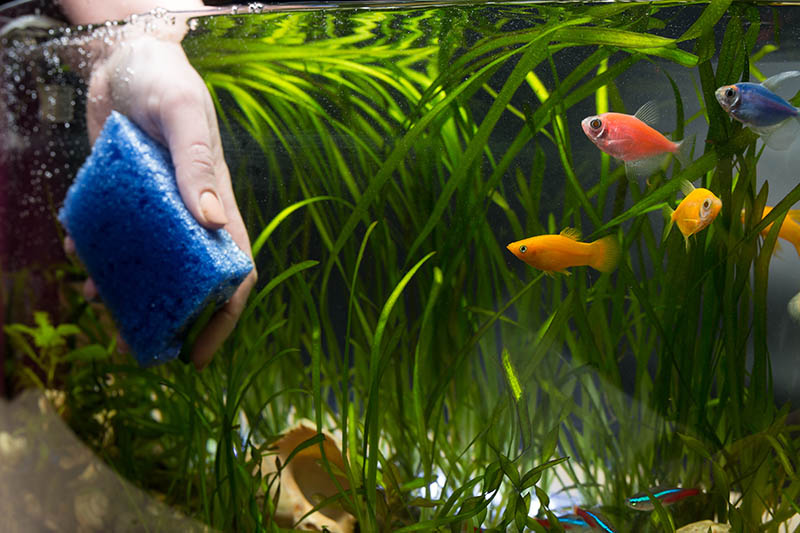
8. Decomposing Algae
One problem fish keepers might experience when treating their tank of an algae bloom is that the decomposing algae can make the water smell bad. Even if you are killing off the algae with water treatments and UV sterilization, the decomposing algae don’t just disappear. It will start to die off and decompose in the water column, causing an unpleasant stench. This is because the decaying algae release sulfur gasses which can smell like poop and rotten eggs.
The overpowering smell can be difficult to get rid of and it will take time for your fish tank to recover from a severe algae bloom. When you are treating your tank for algae, be sure to keep up with the water changes and tank maintenance to lessen the stench.
9. Trapped Gasses
If your aquarium substrate is too thick in size and not porous enough for water to run through it, it can become a breeding ground for anaerobic bacteria. These bacteria naturally produce gasses that have a very foul odor. The gasses eventually rise up into the water and produce a very unpleasant odor. A particularly foul odor can be identified if you ever shuffle the substrate in such a scenario, as a high amount of gas quickly disperses into the water at once when you do so.
Certain bottom dwellers that burrow can be used to combat this issue, as they tend to circulate fresh water into the substrate whenever they burrow and unburrow. Examples include the Kuhli loach, as well as the Malaysian trumpet snail.
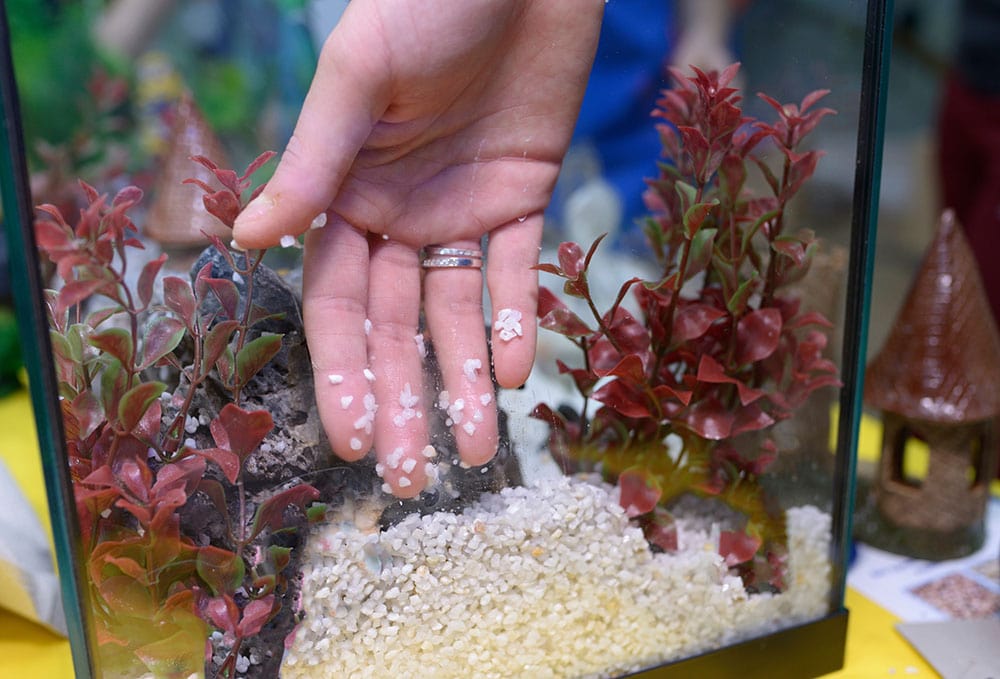
How to Stop Your Fish Tank from Smelling
Once you have determined the root cause of your smelly fish tank, below are ways you can start eliminating the smell from the water.
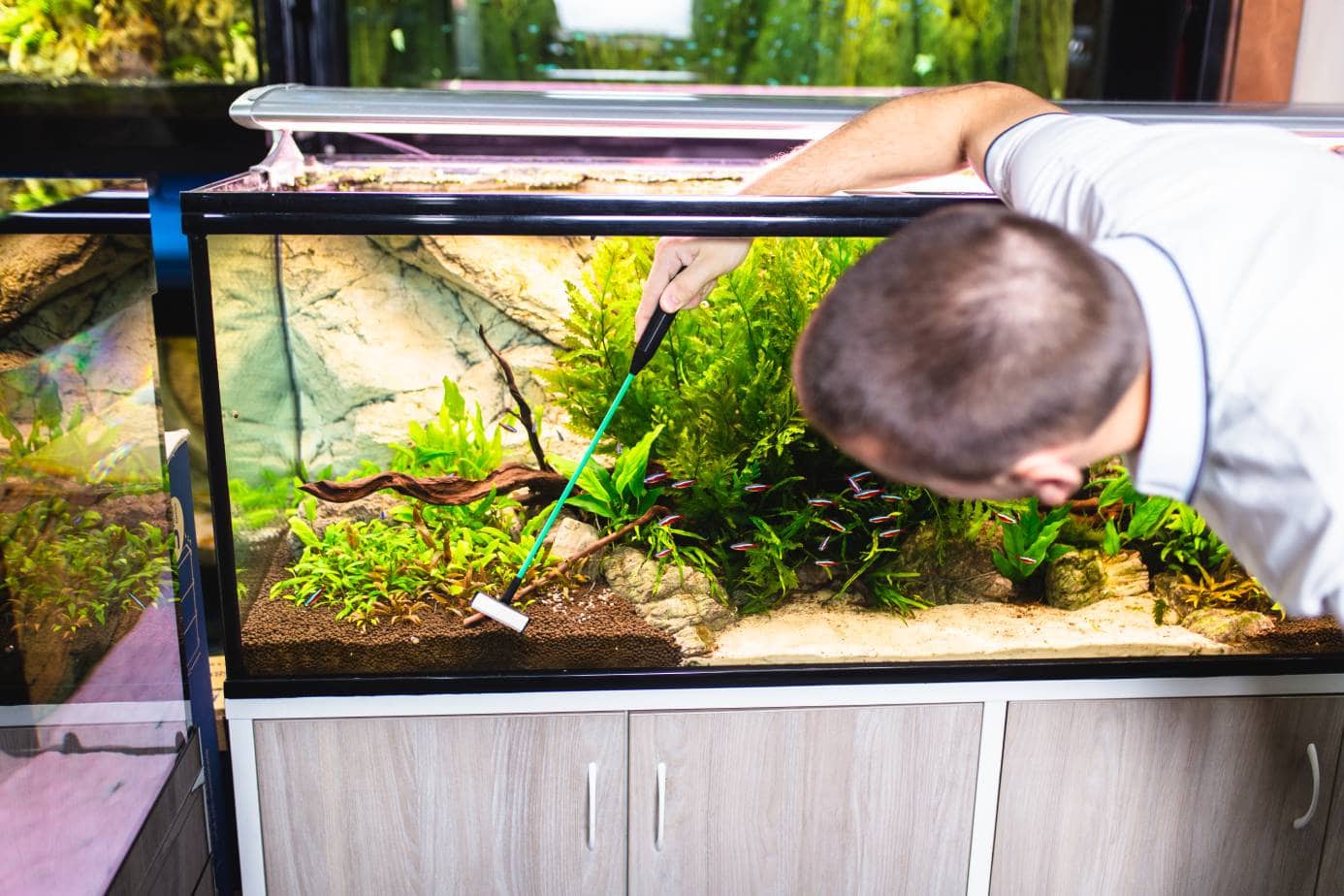
Conclusion
There are many reasons for a fish tank to smell bad, but it usually falls to something decomposing in the water like dead fish or plants. If the fish tank’s water quality is poor, you will definitely notice an assortment of unpleasant smells. This makes it important to regularly maintain the fish tank and remove any dead fish or plants as soon as you notice them.
Featured Image Credit: victoras, Shutterstock



